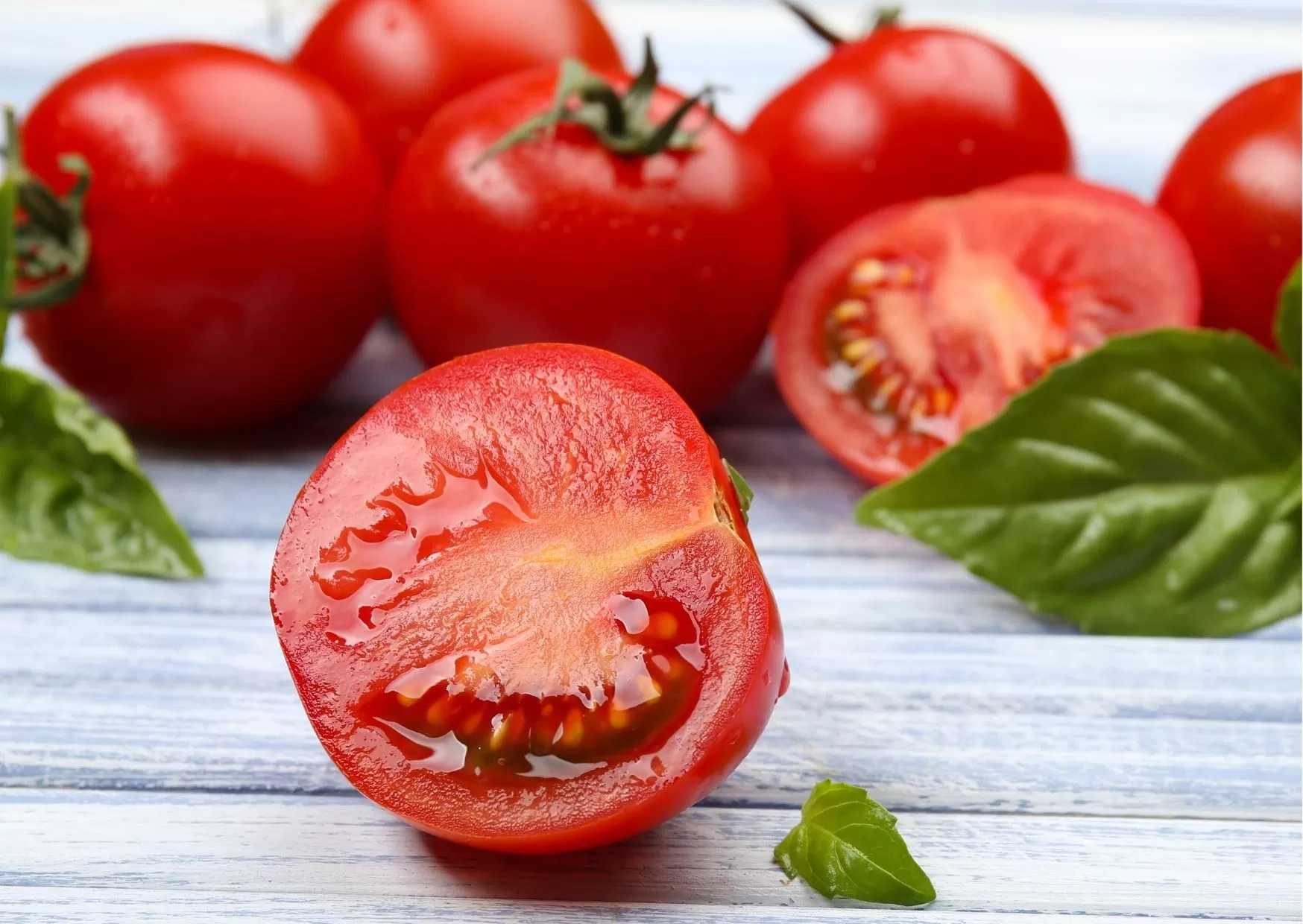- 0086-571-85302990
- sales@greenskybio.com
Which fruit is rich in lycopene?
2025-04-13

In the world of nutrition, antioxidants play a crucial role in maintaining optimal health and preventing disease. One such powerful antioxidant is Lycopene, a carotenoid pigment that gives certain fruits their vibrant red color. Renowned for its health benefits, Lycopene has been extensively researched for its protective effects against chronic illnesses such as cardiovascular disease and cancer. While it is often associated with tomatoes, several fruits are rich in Lycopene, each offering unique benefits. This article delves into the world of lycopene-rich fruits, uncovers their nutritional profiles, and explores the health benefits associated with their consumption.
Understanding Lycopene
Lycopene is a red, fat-soluble pigment found predominantly in fruits and vegetables. As a member of the carotenoid family, lycopene functions as an antioxidant, neutralizing free radicals that can damage cells and contribute to chronic diseases. Unlike some other carotenoids, lycopene does not convert to vitamin A in the body, but its antioxidant activity is highly valued for various health-promoting roles.

Tomatoes: The Lycopene Powerhouse
Tomatoes are perhaps the most well-known source of lycopene, with their rich red color serving as a visual indicator of this antioxidant. In fact, tomatoes and tomato-based products account for more than 80% of dietary lycopene consumption. Cooking tomatoes, as seen in sauces and soups, actually enhances lycopene absorption due to heat breaking down the plant's cell walls, making the nutrient more bioavailable. Furthermore, pairing tomatoes with a healthy fat, such as olive oil, significantly increases lycopene absorption.

Watermelon: A Refreshing Source of Lycopene
Among fruits, watermelon is often overshadowed by tomatoes when discussing lycopene content. Yet, it deserves recognition as one of the richest fruit sources of lycopene. This hydrating fruit boasts more lycopene per serving than raw tomatoes—up to 40% more, depending on the variety. Regular consumption of watermelon not only provides hydration but also offers a valuable nutritional boost due to its high lycopene levels. Additionally, watermelon contains citrulline, an amino acid that promotes heart health and aids in athletic performance.

Pink Grapefruit: A Tart Lycopene Treasure
Another significant source of lycopene is pink grapefruit, a fruit distinguished by its tart flavor and vibrant hue. Though not as rich in lycopene as tomatoes or watermelon, pink grapefruit is a notable contributor to dietary intake of this antioxidant. Apart from lycopene, pink grapefruits offer vitamin C, fiber, and other beneficial compounds, making them a worthy addition to a balanced diet. Including pink grapefruit as a regular part of one's diet can contribute to improved heart health and bolster the immune system.
Papaya: An Exotic Source of Lycopene
Papaya, a tropical fruit renowned for its sweet taste and vibrant color, is another significant source of lycopene. While papayas may not contain as much lycopene as watermelons or tomatoes, they are still a valuable addition to the diet, particularly due to their diverse nutrient profile. Alongside lycopene, papayas are rich in vitamins A and C, folate, and dietary fiber. These nutrients work synergistically to support vision, promote a healthy immune system, and aid digestion.
The Health Benefits of Lycopene
Research has highlighted the potential health benefits of consuming lycopene-rich fruits, emphasizing their role in disease prevention and health maintenance. Some key benefits include:
1. Cardiovascular Health: Lycopene consumption is associated with reduced risk of cardiovascular disease, primarily through its ability to lower LDL cholesterol levels and improve blood vessel function.
2. Cancer Prevention: As an antioxidant, lycopene helps protect cells from oxidative damage, which can lead to cancer. Studies suggest a protective effect against prostate cancer, as well as other forms such as breast and lung cancer.
3. Bone Health: Lycopene may play a role in preserving bone health by inhibiting oxidative stress that could lead to osteoporosis.
4. Skin Protection: Lycopene helps protect the skin from sun damage, reducing the risk of sunburn and improving overall skin health.
Incorporating Lycopene into the Diet
To harness the benefits of lycopene, consider incorporating a variety of lycopene-rich fruits into daily meals. Simple lifestyle changes such as starting the day with a glass of fresh watermelon juice or adding sliced tomatoes to salads can significantly increase lycopene intake. Exploring diverse recipes, such as fruit salads with papaya and pink grapefruit or soups featuring tomatoes, encourages regular consumption of these valuable fruits.
Conclusion
Lycopene is a powerful antioxidant that offers substantial health benefits ranging from cardiovascular protection to cancer prevention. While tomatoes remain the hallmark source of lycopene, fruits like watermelon, pink grapefruit, and papaya deserve recognition for their contributions to dietary intake. By embracing these lycopene-rich fruits, individuals can support their health through natural, flavorful means. In the quest for wellness, tapping into the power of lycopene seems not only wise but deliciously rewarding.
- ▶ Hesperidin
- ▶ citrus bioflavonoids
- ▶ plant extract
- ▶ lycopene
- ▶ Diosmin
- ▶ Grape seed extract
- ▶ Sea buckthorn Juice Powder
- ▶ Beetroot powder
- ▶ Hops Extract
- ▶ Artichoke Extract
- ▶ Reishi mushroom extract
- ▶ Astaxanthin
- ▶ Green Tea Extract
- ▶ Curcumin Extract
- ▶ Horse Chestnut Extract
- ▶ Other Problems
- ▶ Boswellia Serrata Extract
- ▶ Resveratrol Extract
- ▶ Marigold Extract
- ▶ Grape Leaf Extract
- ▶ blog3
- ▶ blog4
- ▶ blog5
-
Does lycopene increase testosterone?
2025-04-13
-
Does lycopene help sperm?
2025-04-13
-
What does lycopene do for your skin?
2025-04-13
-
Why Do Men Need Lycopene?
2025-04-13
-
What Is Lycopene Useful For?
2025-04-13
-
What food has the highest lycopene?
2025-04-13
-
Saponin Extract
2025-04-13
-
Cranberry Extract
2025-04-13
-
Grape Leaf Extract
2025-04-13
-
Diosmin
2025-04-13
-
Bilberry Extract
2025-04-13
-
Phellodendron Extract
2025-04-13
-
Garcinia Cambogia Extract
2025-04-13
-
Fig Extract
2025-04-13
-
Reishi mushroom extract
2025-04-13
-
Grape Seed Extract
2025-04-13






























